Dogs are lovable, loyal, and sometimes… extremely gassy. If you’ve ever wondered, “Why does my dog fart so much?“, you’re not alone. From silent but deadly emissions to loud, room-clearing blasts, dog farts can be both funny and frustrating. Understanding the reasons behind your pup’s excessive gas can help you manage it better.
Are you tired of holding your breath every time your furry friend lets one rip? We’ve all experienced the overwhelming stench of dog farts, but fear not – relief is on the way! In this expert guide, we will ask many times the same question “Why does my dog fart so much” and we will answer it many times according to the right situation.
We’re diving deep into the world of canine flatulence to equip you with the strategies you need to combat those stinky situations and keep the air fresh around your pup. So, if you’re ready to bid goodbye to stinky scenarios and embrace a fresher atmosphere, let’s embark on this journey together and reclaim the air quality in your home.
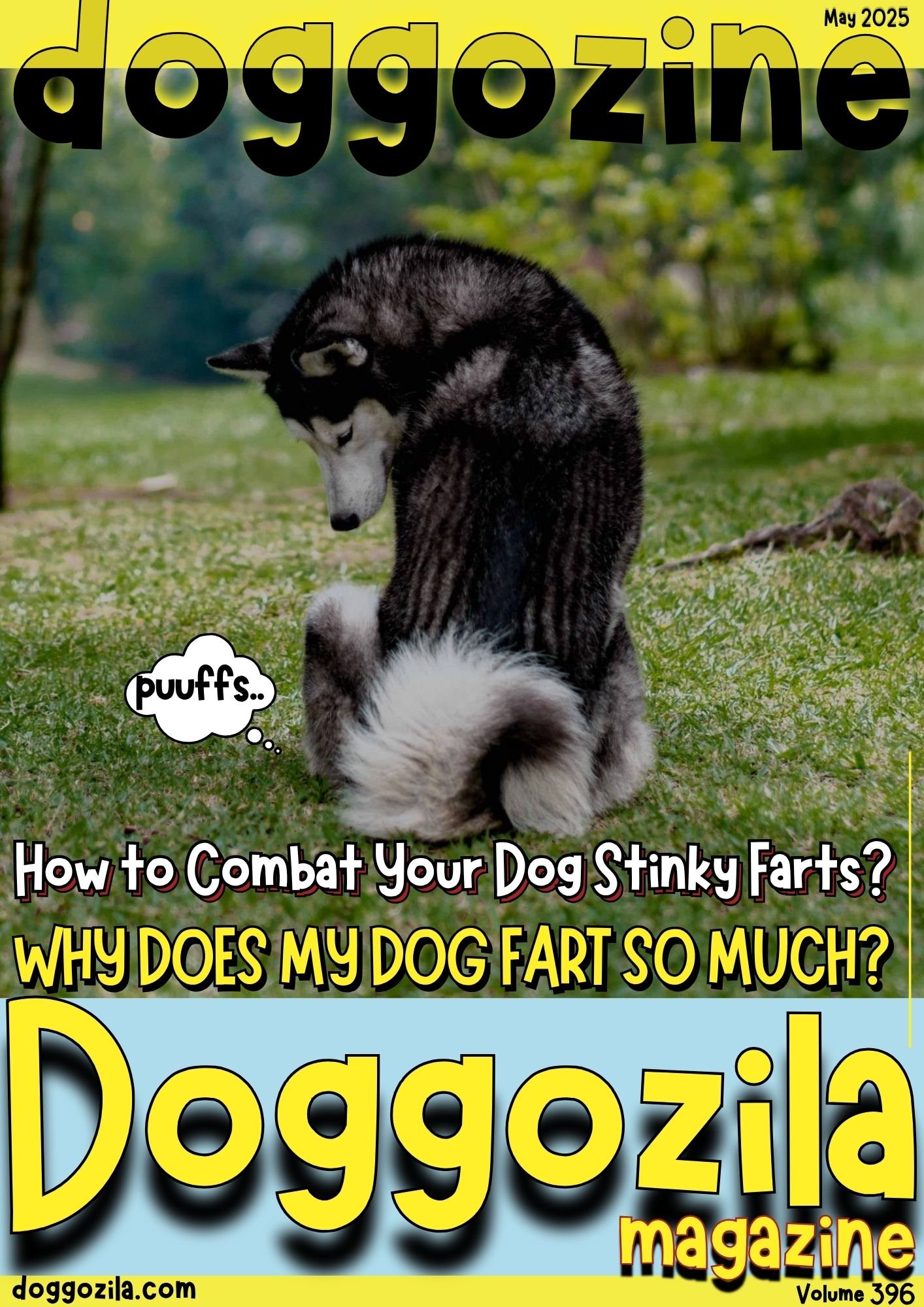
WHAT IS A DOG FART?
A dog fart is the result of a buildup of gas in your furry friend’s intestines. This gas is produced during the digestive process and is released through the rectum, often accompanied by a distinct odor that can have you reaching for the nearest air freshener. But what exactly causes this buildup of gas in your dog’s body? The answer lies in a combination of factors, including diet, digestive health, and even breed-specific traits.
Picture this: a life without constant gassy assaults, where you can enjoy your time with your best friend without reaching for the air freshener. From understanding the causes of dog farts to implementing practical solutions, you’ll discover a treasure trove of insights that will transform your pup’s gas-passing habits. Let’s dive into the stinky science behind your dog’s toots!
My Dog Keeps Farting: Excessive Gas Production
Just like humans, dogs can experience flatulence due to consuming certain foods, such as those high in fiber or difficult to digest. Additionally, some dogs may have sensitive stomachs or food allergies that contribute to excessive gas production.
Understanding the science behind dog farts is the first step in finding effective solutions to minimize their frequency and odor. By exploring the various causes and prevention strategies, you can help your canine companion maintain a healthy digestive system and keep your home smelling fresh.
Digestive Process and Gas Production: Why Does My Dog Fart So Much?
The stomach breaks down food. Enzymes start the process. Acids mix with the food. Bacteria help digest meals. Fermentation creates gas. Gas builds in the intestine. Pressure then forces gas out. This process is normal. It happens at every meal. Diet changes affect the amount. Some foods create more gas. This explains why does my dog fart so much.
The Natural Role of Gas in Digestion and General Dog Health
Gas helps move food along. It relieves intestinal pressure. Small amounts are expected. Many dogs pass gas daily. Studies show it is normal. Gas clears the gut. It aids smooth digestion. The process is automatic. Gas is a sign of active digestion. It comes with every meal. Minor gas is healthy. It proves the digestive system works.
Overall health affects gas. A strong gut reduces flatulence. Diet and exercise play roles. Stress may increase gas. Regular vet checks are important. Some dogs naturally produce more. Genetics also count. Health issues can spike gas levels. Owners see differences from dog to dog. Maintaining health can lower gas. Monitoring helps early detection. Good health means balanced gas emission.
🔑 Key Points: Dog farts are caused by a buildup of gas in the intestines, influenced by factors such as diet, digestive health, and breed-specific traits.
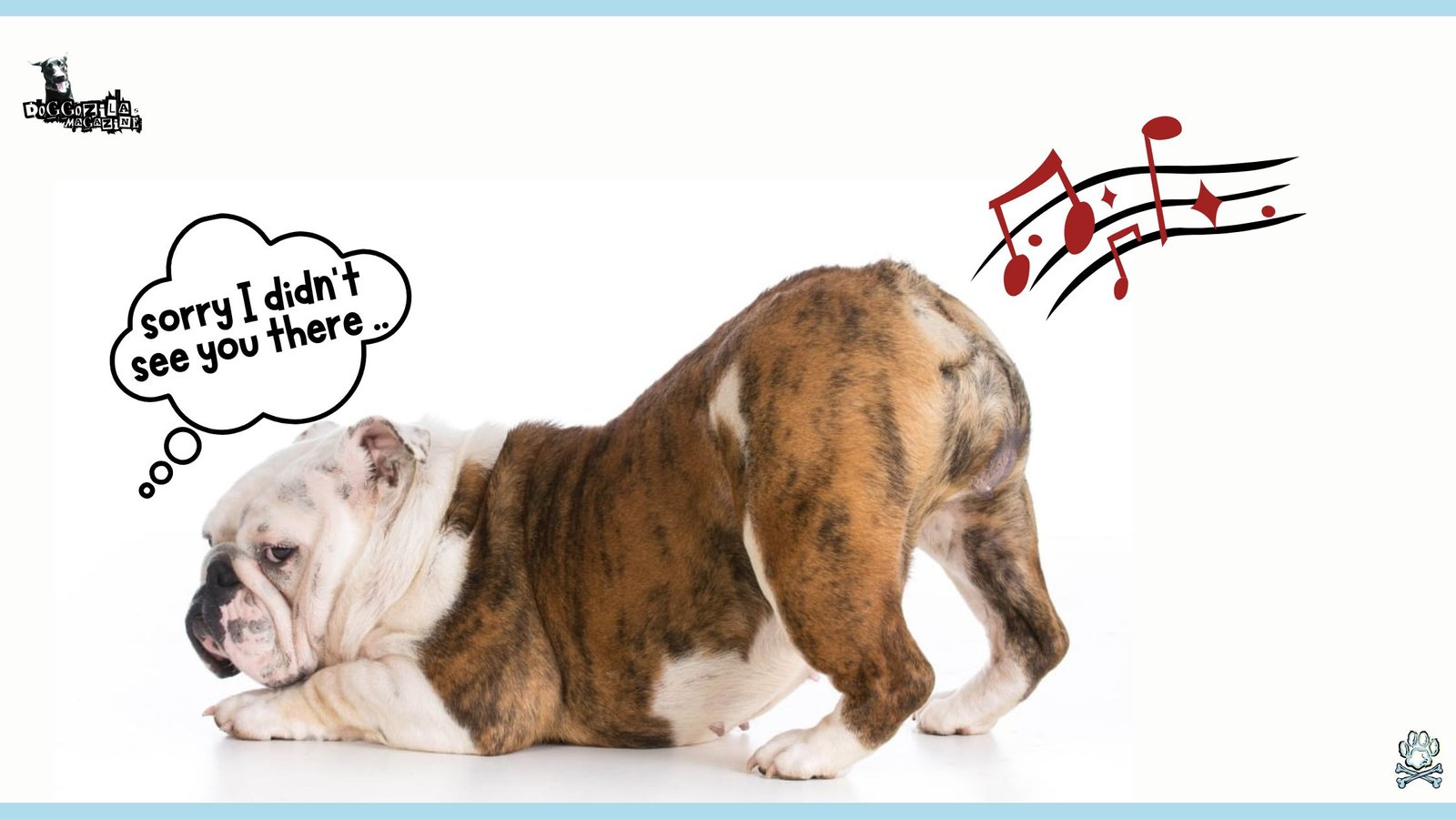
DIETARY CAUSES FOR FLATULENCE: WHY DOES MY DOG FART SO MUCH IN DAILY MEALS?
What your dog eats plays a huge role in how much gas they produce. Low-quality kibble, table scraps, and certain ingredients can turn your pup into a fart machine. Dogs digest food differently than humans, and some ingredients ferment in their gut, creating gas. Switching to a high-quality, easily digestible diet might help. Always check with your vet before making major food changes.
Impact of Food Quality on Canine Gas
Quality food aids digestion. Fresh meals are easier to break down. Low-quality food upsets the gut. Poor food creates more gas. Natural ingredients work best. Processed foods stress the system. Owners see fewer farts with premium meals. Vets recommend better food. High-quality proteins matter. Avoid fillers that harm digestion. A balanced diet is wise. Food quality greatly affects gas levels.
Beans, dairy, and fatty meats are common culprits when asking, “Why does my dog fart so much? ” Even healthy foods like broccoli and cauliflower can cause gas. Some dogs are sensitive to grains, while others struggle with high-fiber dog diets. Experimenting with different proteins (like chicken, fish, or lamb) might reduce gas. Keep a food diary to track which meals trigger the most farts.
Food Additives And Flatulence: Why Does My Dog Fart So Much In Certain Diets?
Additives upset the stomach. Artificial flavors stress the gut. Preservatives often trigger gas. Many additives cause bloating. A natural diet reduces flatulence. It is best to check labels. Ingredients matter for digestion. Owners compare food brands closely. Some brands cause severe gas. This can lead to discomfort. Eliminating additives helps the belly. It prompts the question, “why does my dog fart so much” in some diets.
Dogs that gulp down food swallow extra air, which turns into farts later. Slow-feeder bowls or puzzle toys can help them eat at a healthier pace. Smaller, more frequent meals may also reduce gas buildup. If your dog is a speed-eater, try spreading their kibble on a baking sheet. Slowing their eating can make a huge difference in gas production.
Balanced Nutrition and Its Effects on Digestive Health
Balanced nutrition is essential. It supports smooth digestion. Proteins, fats, and carbs must align. Good nutrition lowers gas. A healthy dog diet boosts energy. Digestive enzymes work optimally. Fiber helps steady the gut. Regular meals keep balance. Small changes can make a difference. Quality nutrition is vital. Smart choices cut down flatulence. A balanced diet improves overall gut health.
If you’re still wondering, “Why does my dog fart so much? “, allergies could be to blame. Common allergens like beef, chicken, or wheat can upset your dog’s stomach. Symptoms include gas, itching, and loose stools. An elimination diet can help identify the problem ingredient. Your vet may recommend hypoallergenic food if allergies are suspected.
🔑 Key Points: A dog’s diet plays a significant role in flatulence, with food allergies, intolerances, and sudden dietary changes being common culprits.
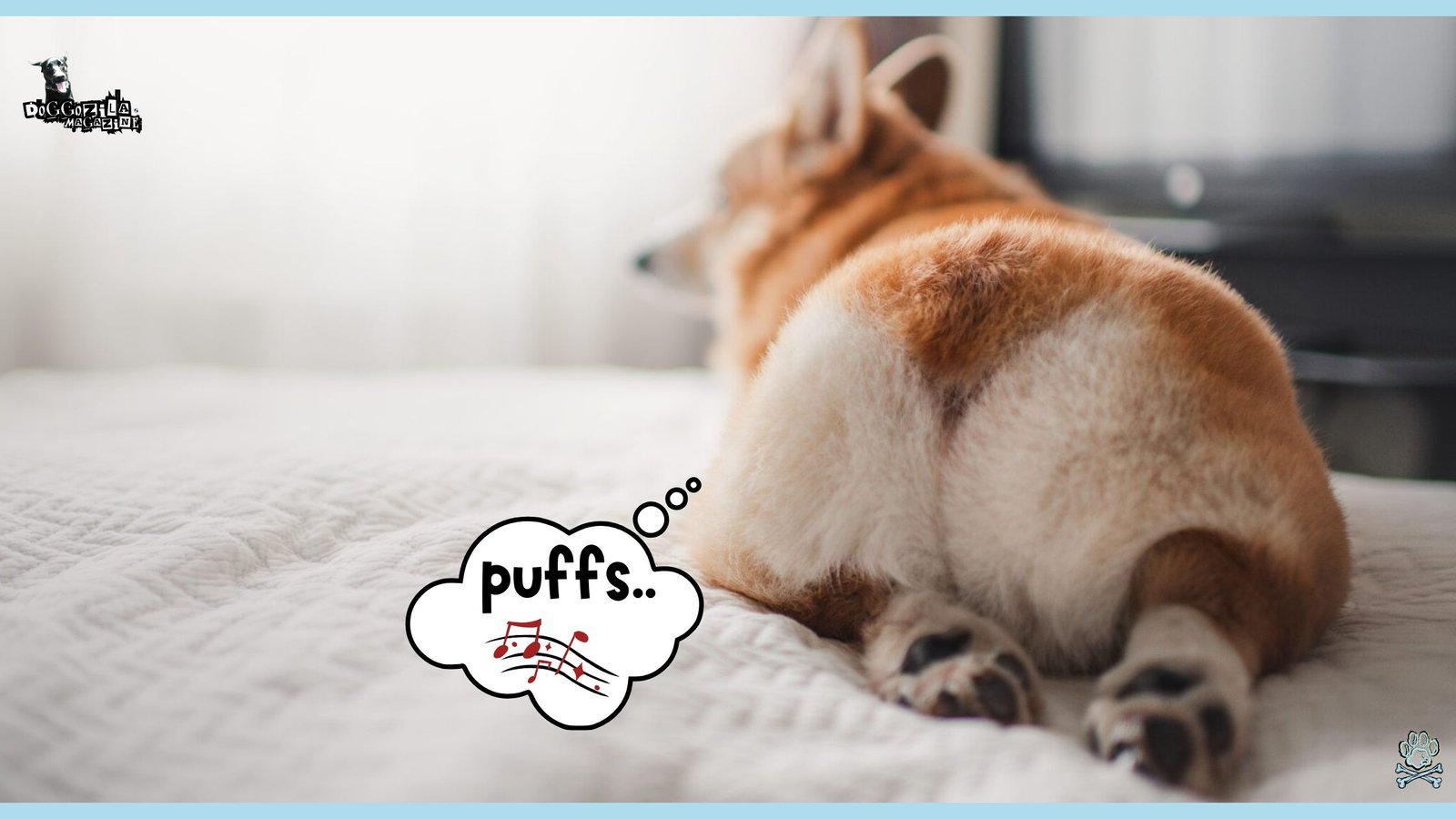
HEALTH CONCERNS AND DIGESTIVE ISSUES: WHY DOES MY DOG FART SO MUCH BECAUSE OF ILLNESS?
Illness can raise gas levels. Digestive disorders cause flatulence. Infections upset the stomach. Regular vet visits are key. Owners ask, “why does my dog fart so much?” when health declines.
Just like humans, dogs can suffer from digestive troubles that lead to excessive gas. An imbalanced gut microbiome, infections, or enzyme deficiencies can all contribute. Some breeds (like Boxers and Bulldogs) are naturally gassier due to their body structure. If gas is accompanied by vomiting or diarrhea, see a vet immediately.
Gastrointestinal Disorders and Their Effects: Why Does My Dog Fart So Much When Disease Strikes?
GI disorders disrupt digestion. They create gut turbulence. Inflammation produces extra gas. Conditions like IBS are common. The digestive tract becomes sensitive. Normal flow is interrupted. Excess gas builds quickly. Dogs often show discomfort. Treatment helps restore balance. Medications may be necessary. A stable GI system is crucial. This leads many to ask, “why does my dog fart so much” during illness.
Some dogs don’t produce enough enzymes to break down food properly. This leads to fermentation—and yes, more farts. Enzyme supplements can help improve digestion. Look for products containing pancreatin or bromelain. Always consult your vet before adding supplements to your dog’s diet.
Impact of Infections on Canine Flatulence
Infections disturb the gut balance. Bacteria change during illnesses. Viruses can upset digestion. Infections slow food transit. They cause visible discomfort. Extra gas is a typical sign. Owners notice changes in behavior. Vets can diagnose infections. Testing is done quickly. Treatment resets the system. Recovery usually improves function. Proper care clears abnormal gas.
An overgrowth of bad gut bacteria leads to smelly gas. Probiotics designed for dogs can help restore balance. Yogurt (plain, unsweetened) can also introduce good bacteria. If gas persists, your vet might test for Small Intestinal Bacterial Overgrowth (SIBO). A healthy gut means fewer stinky surprises.
The Role of Chronic Conditions in Digestive Health
Chronic issues impact digestion. Long-term illnesses can increase gas. Diabetes in dogs alters the gut environment. Thyroid issues affect metabolism. Ongoing inflammation is worrisome. Chronic conditions demand attention. They may lead to persistent flatulence. Regular monitoring is essential. Dietary adjustments help manage symptoms. Consistent care is key. Managing these issues improves life.
Effective treatment lessens gas over time. If you’re asking, “Why does my dog fart so much? “, worms could be the answer. Parasites like giardia disrupt digestion and cause gas. Regular dog deworming and fecal tests can keep parasites in check. Symptoms include bloating, weight loss, and excessive farting. A quick vet visit can rule out this smelly problem.
🔑 Key Points: Maintaining a balanced gut microbiome through prebiotics, probiotics, regular exercise, and stress reduction is key to minimizing dog flatulence and supporting overall digestive health.
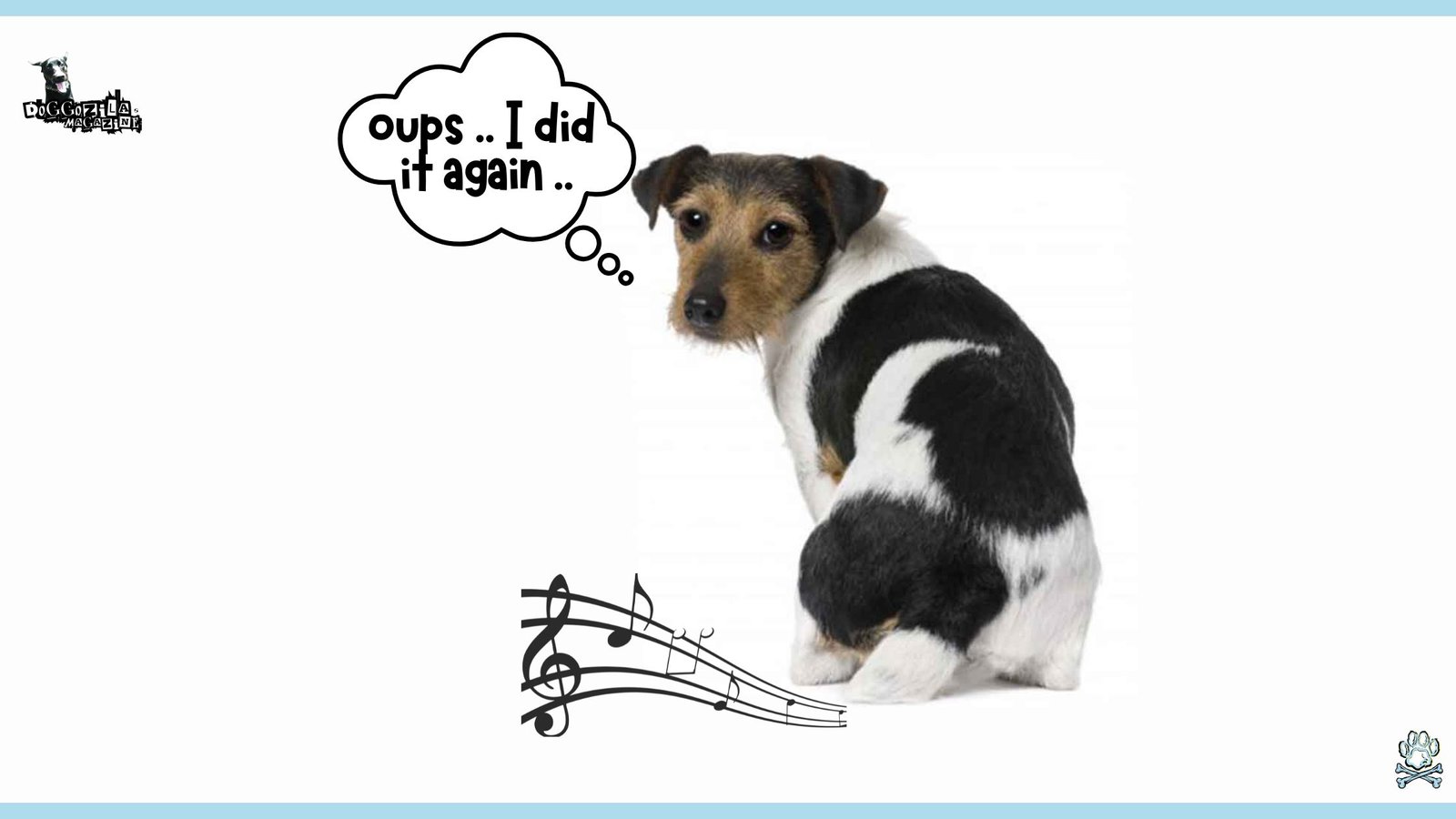
BEHAVIOR AND EATING HABITS: WHY DOES MY DOG FART SO MUCH DURING MEALTIME?
The way your dog eats can also contribute to excessive gas production. If your furry friend tends to gulp down their food quickly, they may be swallowing a lot of air in the process, leading to increased flatulence. Eating habits shape digestion. Rapid eating causes air intake. Chewing well aids digestion. This kind of behavior can alters flatulence.
Effects of Rapid Eating on Flatulence: Why Does My Dog Fart So Much When Eating Fast?
Fast eating makes dogs swallow air. Quick meals lead to belly bloating. This extra air creates gas. Rapid gulping worsens digestion. Bloating increases pressure. Extra gas is released as farts. Owners often notice the difference. Slowing down helps a lot. Feeding slowly improves the system. It promotes proper digestion. Changing mealtime habits lowers gas. This can also answer the question, “why does my dog fart so much? ” when eating in haste.
Influence of Meal Timing and Frequency on Gas Production
Meal timing is very important. Smaller, frequent meals work best. Large meals stress the stomach. Consistent feeding helps balance digestion. Regular schedules train the gut. Distributed meals lower air intake. Owners see benefits quickly. Frequency matters for gut health. Adjusting meal times enhances digestion. It smooths the digestive process.
Fewer heavy meals mean less gas. Routine feeding improves overall comfort. In addition to using a slow feeder bowl, establish a consistent feeding schedule and provide a quiet, distraction-free environment for your dog to eat. This can help reduce stress and promote more relaxed, mindful eating habits.
The Importance of Chewing and Food Texture
Chewing breaks food into small pieces. It eases digestion. Food texture affects digestion speed. Hard kibbles may cause extra gas. Wet foods digest more gently. Proper chewing is key. Dogs need to slow down when eating. The texture of food matters a lot. It affects how air is swallowed. Good chewing leads to better digestion.
Owners can try different food types. Healthier textures reduce flatulence. If you have multiple dogs, consider feeding them separately to minimize competition and stress during mealtimes. This can help prevent rapid eating and excessive air intake, ultimately reducing the likelihood of smelly farts.
🔑 Key Points: Identifying and managing food allergies or sensitivities through dietary adjustments, under the guidance of a veterinarian, is essential for reducing excessive gas and promoting overall digestive health in dogs.
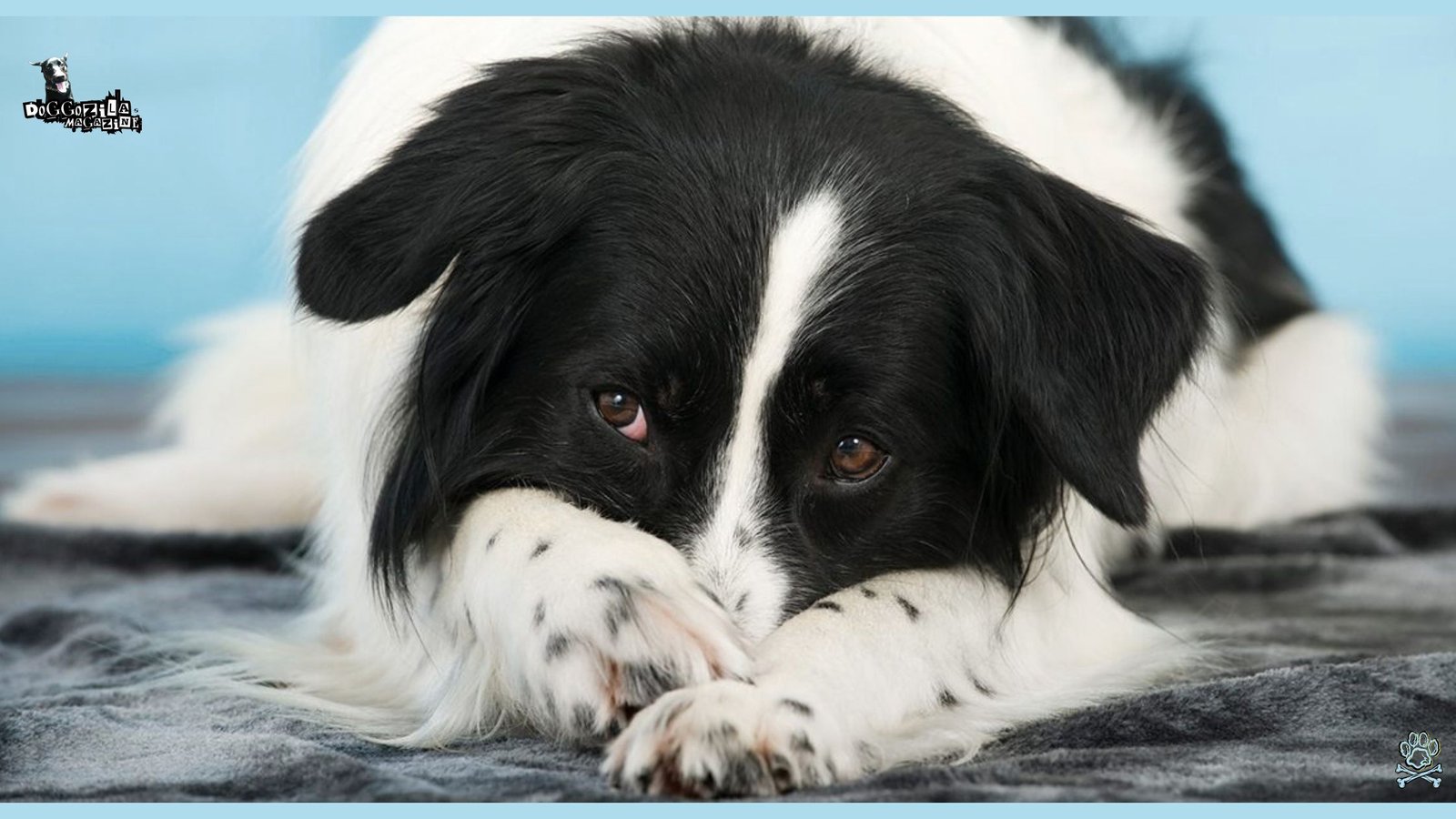
ENVIRONMENTAL AND LIFESTYLE FACTORS: WHY DOES MY DOG FART SO MUCH IN DAILY LIFE?
Believe it or not, your dog’s emotions can turn them into a fart machine. Stress, anxiety, and even excitement can upset their stomach. Just like humans get “nervous stomachs,” dogs release gas when uneasy. Changes in routine, loud noises, or separation anxiety might be the hidden cause. Keeping your pup calm could mean fewer stinky surprises.
That’s why it is good to know that your lifestyle choices affect the gut. Stress increases gas production. Regular exercise aids digestion. A calm home reduces problems. If many owners know this they wouldn’t ask, “why does my dog fart so much?” each day.
Impact of Stress and Anxiety on Dog Flatulence: Why Does My Dog Fart So Much Under Pressure?
Anxious dogs often pant or gulp air, which turns into farts later. Thunderstorms, fireworks, or vet visits can trigger this. Calming supplements (like CBD oil for dogs) might help reduce stress-farts. A cozy den or anxiety vest can also provide comfort. If your dog farts more during stressful events, anxiety is likely the culprit.
That’s why stress disrupts normal digestion. Anxiety forces the gut to work hard. Tension slows down the process. Cortisol levels may rise. Higher stress produces more gas. Dogs show signs of anxiety. Calm environments ease the burden. Owners can help reduce stress. A relaxed dog farts less. Routine and play are beneficial. Daily calmness is essential.
The Role of Physical Activity in Improving Digestion
A post-meal walk encourages digestion and prevents gas buildup. Just like humans, dogs benefit from light activity after eating. Avoid intense exercise right after meals to prevent bloat. Even a 10-minute stroll can make a difference in fart frequency. Regular exercise supports the gut. Activity helps move food along.
Play time stimulates the intestines. Walks benefit overall metabolism. Physical movement burns excess energy. Active dogs show better digestion. Daily exercise is recommended. It reduces buildup in the stomach. A bit of running does wonders. Moderate play eases flatulence.
Activity levels directly affect gas. Exercise is a key to a healthy gut. Interactive games like fetch or tug-of-war stimulate digestion. Mental stimulation also reduces stress-related gas. A bored dog might overeat or swallow air out of anxiety. Keeping your pup active means fewer stinky surprises.
Sleep, Relaxation, and Their Effects on Gut Health
Rest is vital for digestion. Sleep helps the body recover. A relaxed pet digests better. Quality rest calms the system. Dogs need quiet time. Good sleep reduces stress. Calm moments improve metabolism. A cozy bed makes a difference. Uninterrupted sleep is essential. Routines that favor rest help digestion. Owners can create a calm space. Relaxing environments boost overall gut health.
Some pet owners swear by gentle stretching to relieve doggy gas. Massaging your dog’s belly in circular motions can help release trapped gas. “Doga” (dog yoga) is a fun way to bond while aiding digestion. Always be gentle—no one likes a forced downward dog!
🔑 Key Points: Assessing and optimizing your dog’s diet, with the guidance of a veterinarian, is a crucial step in reducing flatulence and supporting overall digestive health.
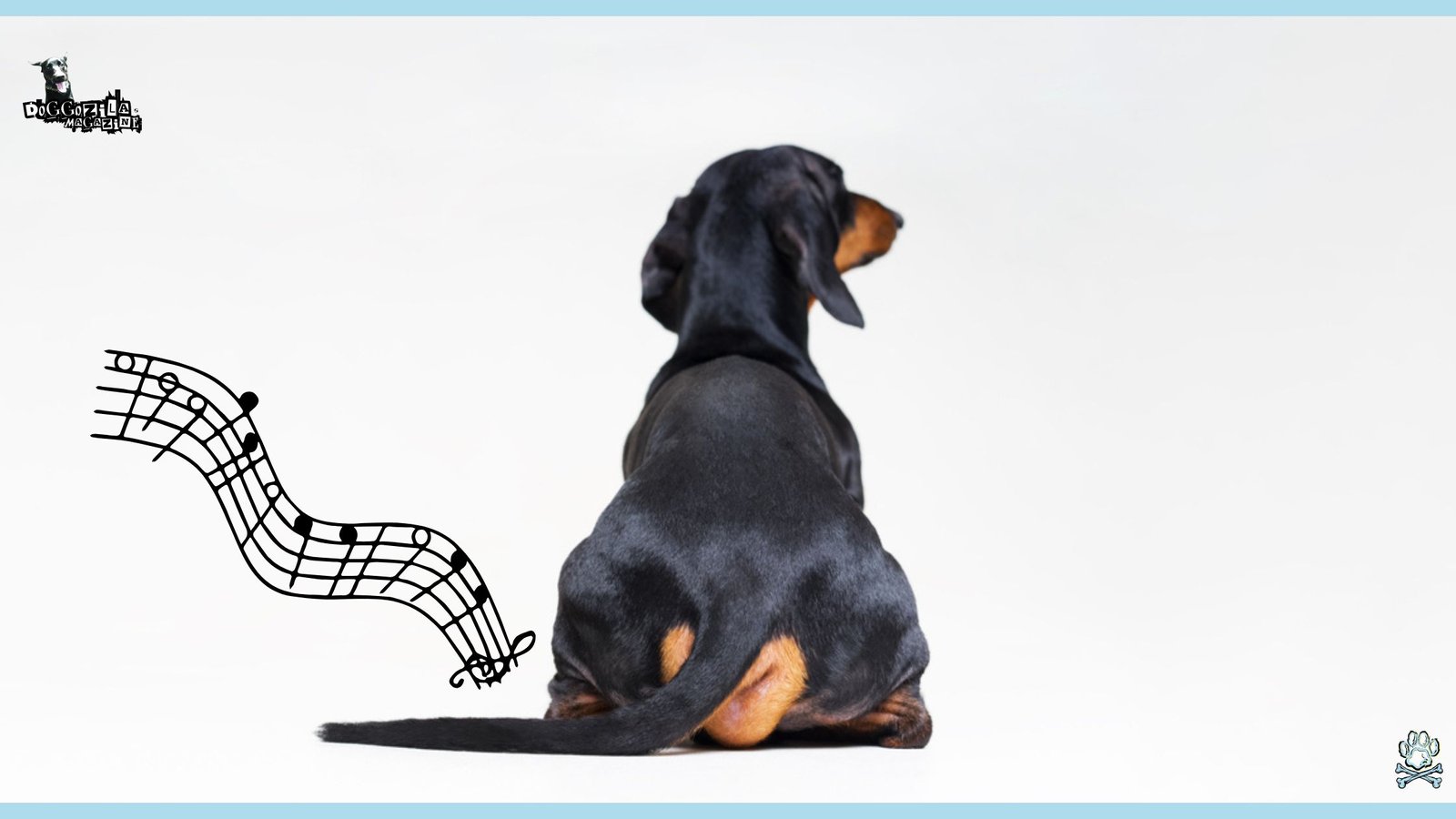
SIMPLE SOLUTIONS TO REDUCE CANINE GAS
Now that we’ve answered “Why does my dog fart so much? “, let’s fix it! Simple changes can make a huge difference in gas levels. From diet tweaks to probiotics, here’s how to clear the air. Better food can help a lot. Regular exercise is important. Routine adjustments improve digestion. Practical methods work well in many cases.
Dietary Adjustments and Food Alternatives
Switching brands may ease digestion. Natural ingredients are preferred. Grain-free diets may help. Look for high-quality proteins. Avoid unnecessary fillers. Small changes can reduce gas. Owners should experiment slowly. Monitor your dog’s reaction. Food trials can reveal issues. Consistency in change is key. It is a simple, practical step.
These adjustments lower flatulence. Cheap kibble often contains fillers that ferment in the gut. Look for foods with real meat as the first ingredient. Limited-ingredient diets help pinpoint sensitivities. Gradually transition to avoid stomach upset. Your dog (and your nose) will thank you.
Feeding Techniques That Prevent Gas: Why Does My Dog Fart So Much When Fed Differently?
Change feeding routines slowly. Use puzzle feeders to slow eating. Offer several small meals each day. Avoid free-feeding methods. Elevate bowls to ease swallowing. Measure out portions precisely. Consistency helps the gut. Different techniques lower gas naturally. Owners report noticeable improvements. Patience is needed for change. These methods reduce air intake. They may answer, “why does my dog fart so much” when methods change.
Use a slow-feeder bowl or scatter kibble on the floor. Smaller, more frequent meals ease digestion. Elevated bowls help brachycephalic breeds. Less swallowed air = fewer farts. Brachycephalic dog breeds, such as Pugs, Bulldogs, and Boston Terriers, are more prone to excessive flatulence due to their unique facial structure. These dogs have shortened snouts, which can cause them to swallow a lot of air while eating or drinking.
This excess air passes through the digestive system and is released as gas, leading to more frequent and often smellier farts. Brachycephalic breeds may also have narrow nostrils or elongated soft palates that further contribute to their increased risk of flatulence. If you have a brachycephalic dog, it’s essential to be mindful of their eating habits and consider using slow-feeder bowls to reduce the amount of air they swallow during mealtimes.
The Benefits of Probiotics and Digestive Enzymes
Incorporating probiotics and digestive enzymes into your dog’s diet can help support a balanced gut microbiome and improve digestion, ultimately reducing excessive gas. Probiotics are beneficial bacteria that help maintain a healthy balance of gut flora, while digestive enzymes aid in breaking down food and facilitating nutrient absorption.
When selecting a probiotic supplement for your dog, look for a high-quality, veterinarian-recommended product that contains a variety of bacterial strains, such as Lactobacillus and Bifidobacterium. These strains have been shown to support digestive health and reduce gas production.
Digestive enzyme supplements, on the other hand, can help break down complex carbohydrates, proteins, and fats, making them easier for your dog’s body to absorb. This can be particularly beneficial for dogs with food sensitivities or those who struggle to digest certain ingredients.
Before introducing any new supplements to your dog’s diet, it’s essential to consult with your veterinarian to ensure they are safe and appropriate for your furry friend’s specific needs. They can help you select the right products and determine the optimal dosage for your dog’s age, weight, and health status.
🔑 Key Points: Probiotics and digestive enzymes can be valuable additions to your dog’s diet, helping to support a healthy gut microbiome, improve digestion, and reduce excessive gas.
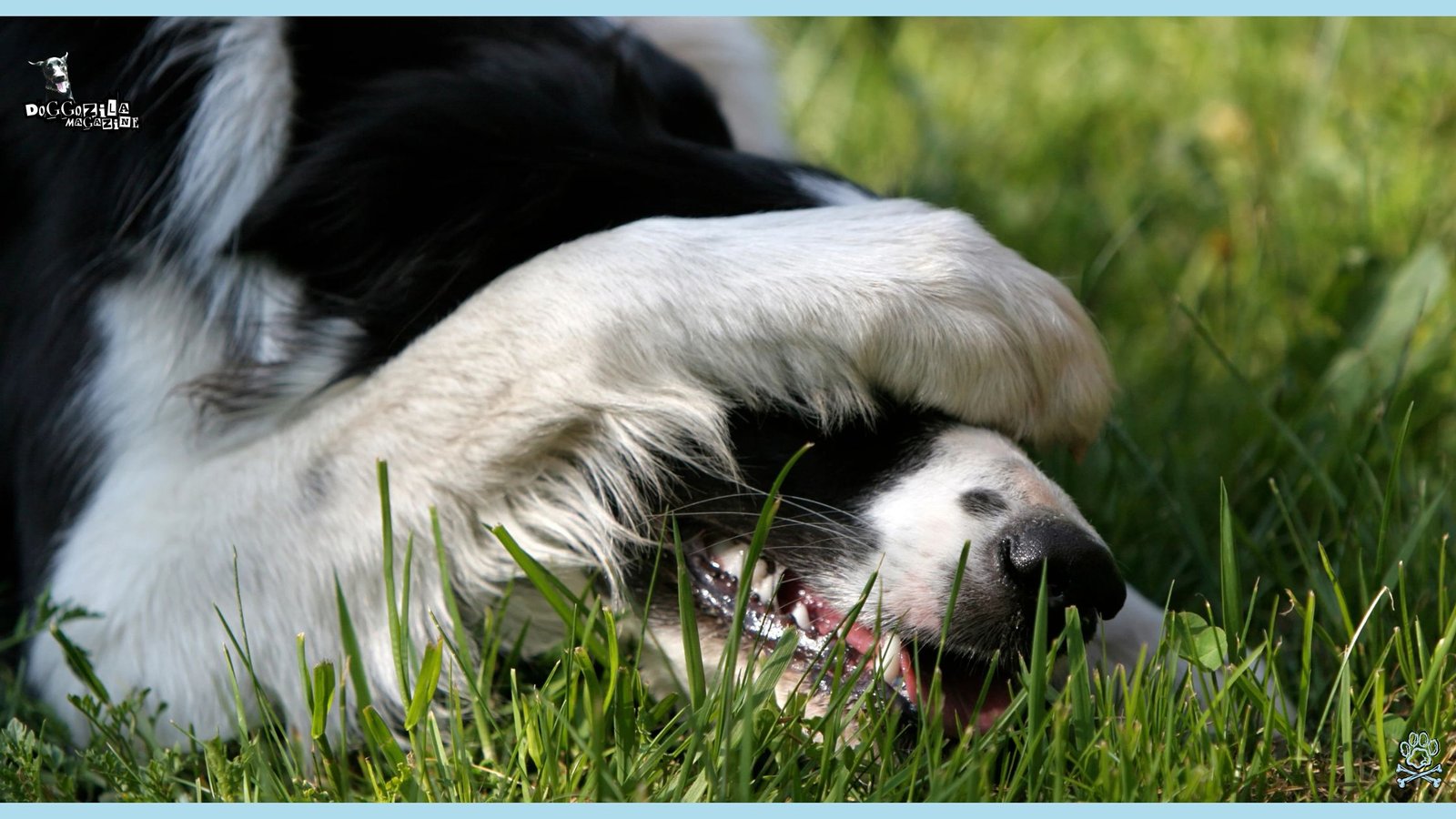
EXPERT OPINIONS AND RESEARCH INSIGHTS ON DOG FLATULENCE
Experts study canine digestion daily. They focus on diet and adaptive behavior. Research reveals many factors. Veterinarians offer key advice. The field sheds light on dog flatulence.
Veterinary Insights on Digestive Disorders: Why Does My Dog Fart So Much in Clinical Studies?
Vets monitor digestive issues closely. Disorders disrupt normal functions. Inflammation raises gas production. Thorough examinations catch problems early. Tests reveal gut imbalances. Medications may ease symptoms. Diet changes often follow treatment. Regular checkups are vital. Data is recorded for analysis. Clinical studies inform treatment plans. Owners see gradual improvements. This research leads many to ask, “why does my dog fart so much” in clinical contexts.
Research Studies on Diet and Digestive Health: Why Does My Dog Fart So Much According to Data?
Studies compare various diets. Data shows clear differences in gas levels. Scientific trials measure flatulence precisely. Researchers focus on nutritional effects. Results drive dietary recommendations. Statistical trends support food changes. Controlled trials have consistent findings. Many studies highlight additives as culprits. Researchers share their evidence openly. Data helps owners choose smarter diets. Research provides practical insights. Thus, data often explains, “why does my dog fart so much” statistically.
Behavioral Research on Canine Eating Habits
Researchers observe dogs during mealtime. Eating habits greatly impact digestion. Stress during meals can increase gas. Regular routines yield better results. Observations link pace with flatulence. Structured feeding lowers issues. Owners can modify habits easily. Studies prove slow eating is best. Data reinforces behavioral adjustments. Daily routines matter a great deal. Research guides owners toward improvement. These insights help manage digestion.
🔑 Key Points: Utilizing slow feeder bowls and promoting proper eating habits can significantly reduce the amount of air your dog swallows during mealtimes, minimizing the occurrence of flatulence.
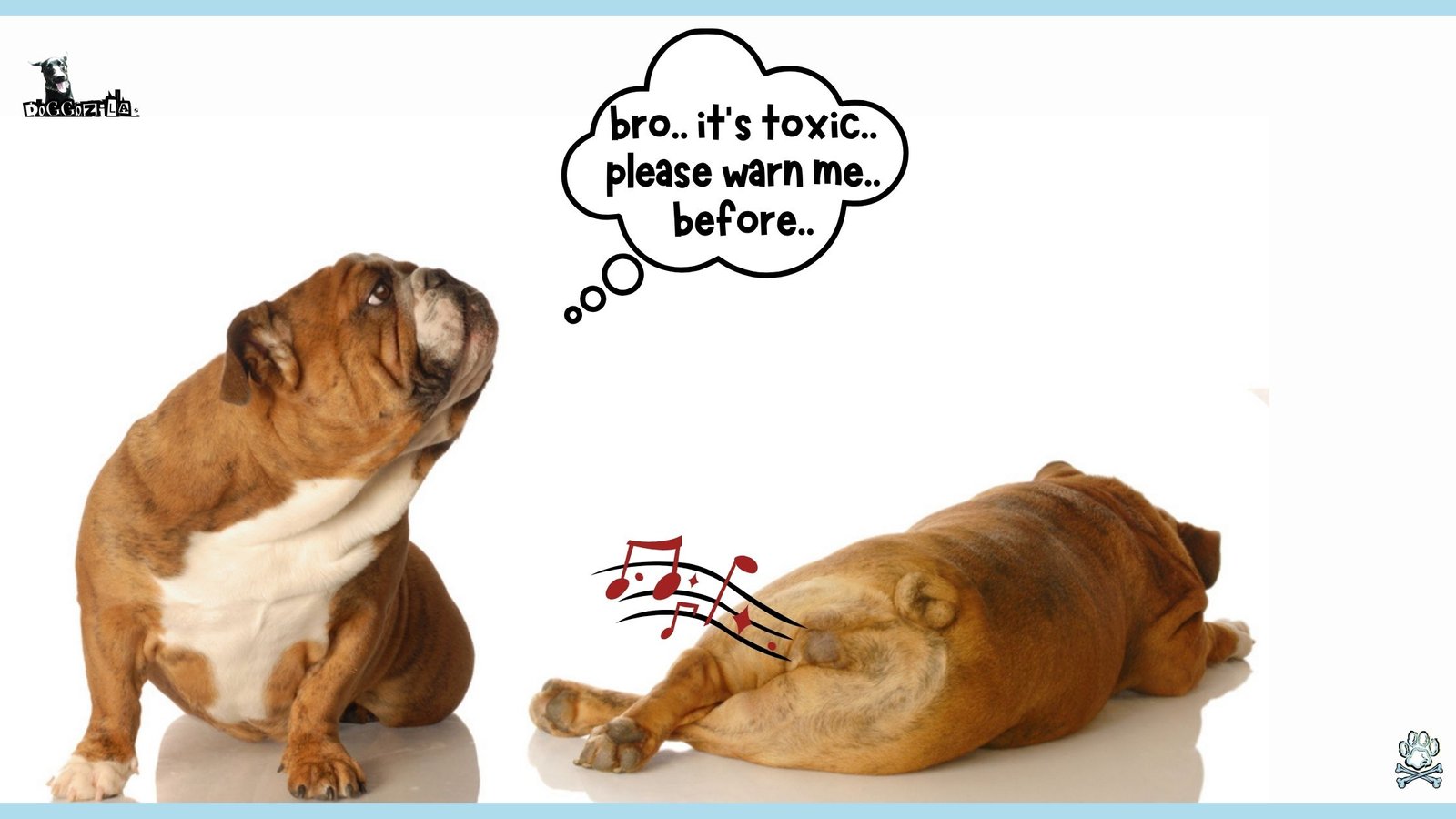
COPING AND HUMOR: LIVING WITH A GASSY DOG
Living with gas is comical. Owners learn to laugh at it. Humor eases daily frustrations. A light heart makes challenges fun. Many eventually embrace their gassy pet. Dog farts can be embarrassing, hilarious, or downright horrifying. Doggozila Magazine asked pet owners to share their gassiest tales—and they did NOT disappoint. From stealthy crop-dusting to fart-induced wake-up calls, these stories prove you’re not alone.
Top 3 Real Stories from Our Readers on The Topic Why Does My Dog Fart So Much?
The Silent But Deadly Office Fart Disaster: One owner’s Labrador let out a noiseless fart during a Zoom meeting—until the smell hit. Colleagues blamed each other before the dog was caught “red-pawed.” Now, the pup gets banished during important calls. Moral of the story? Always suspect the dog first.
The Fart That Woke the Whole House: A Great Dane’s late-night fart was so loud, it set off a barking chain reaction. The neighbors even texted to ask if everything was okay. Now, the family avoids giving beans at dinner. Some farts are truly explosive.
The Dog Who Farted Himself Awake (Then Got Mad): A sleepy Beagle tooted so hard, it startled himself—then growled at his own butt. The owner couldn’t stop laughing for days. Dogs have zero shame when it comes to gas.
Embracing the Humor in Canine Flatulence
Humor lightens heavy moods. A smile improves the day. Jokes about gas are very common. Owners share funny anecdotes. Laughter bonds families together. It turns stress into amusement. Light-hearted views spread quickly. Funny moments become cherished memories. Every giggle eases frustration. Pets bring joy in quirky ways. Humor makes life colorful. Embracing laughter strengthens bonds.
Lifestyle Hacks for Managing Dog Gas: Why Does My Dog Fart So Much When Living with a Gassy Pet?
Simple hacks ease daily issues. Home remedies reduce odors. Air fresheners improve indoor air. Regular cleaning is essential. Diet tweaks can help too. Routine exercise benefits digestion. Probiotics are recommended as well. Owners try various small fixes. Each hack makes a difference. Practical tips bring relief. Many experiments lead to success. They help answer, “why does my dog fart so much” while living with gas.
Celebrating Uniqueness Amid Flatulence: Why Does My Dog Fart So Much Not Stop Love?
Every dog is unique. Flatulence is just one trait. It does not define their worth. Owners cherish quirks and all mishaps. Laughter brings families closer. Acceptance grows with humor. Every challenge is met with love. Pets show joy in many ways. Quirks become funny stories. Life feels lighter with a smile. Love outweighs every flaw. Indeed, “why does my dog fart so much” never stops our love.
Final Thoughts: Embrace the Farts (But Fix Them Too!)
Dog farts are a natural (if stinky) part of pet ownership. Now that you know why does my dog fart so much, you can take steps to minimize the odor. Whether it’s diet changes, stress reduction, or a vet visit, a fresher home is possible. And hey—sometimes, a good dog fart is just a reminder of their quirky, lovable selves.
Share it with us if you got a funny dog fart story! 🐕💨










